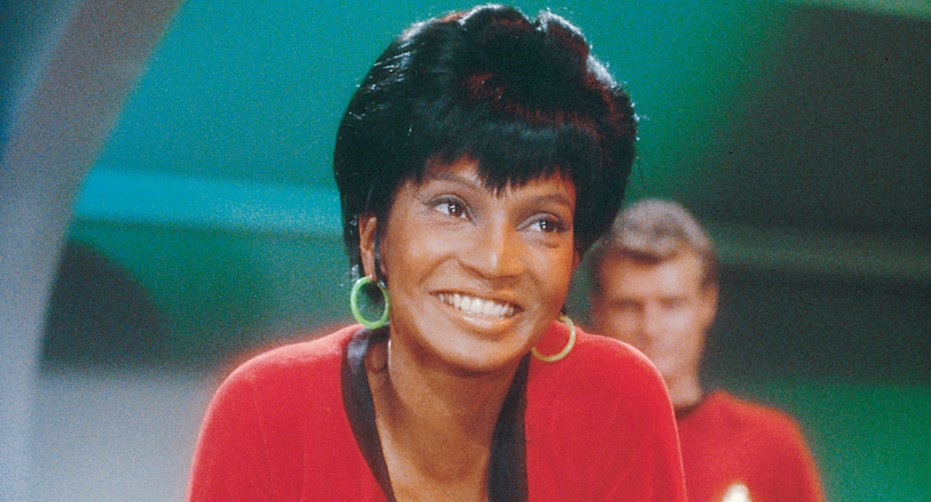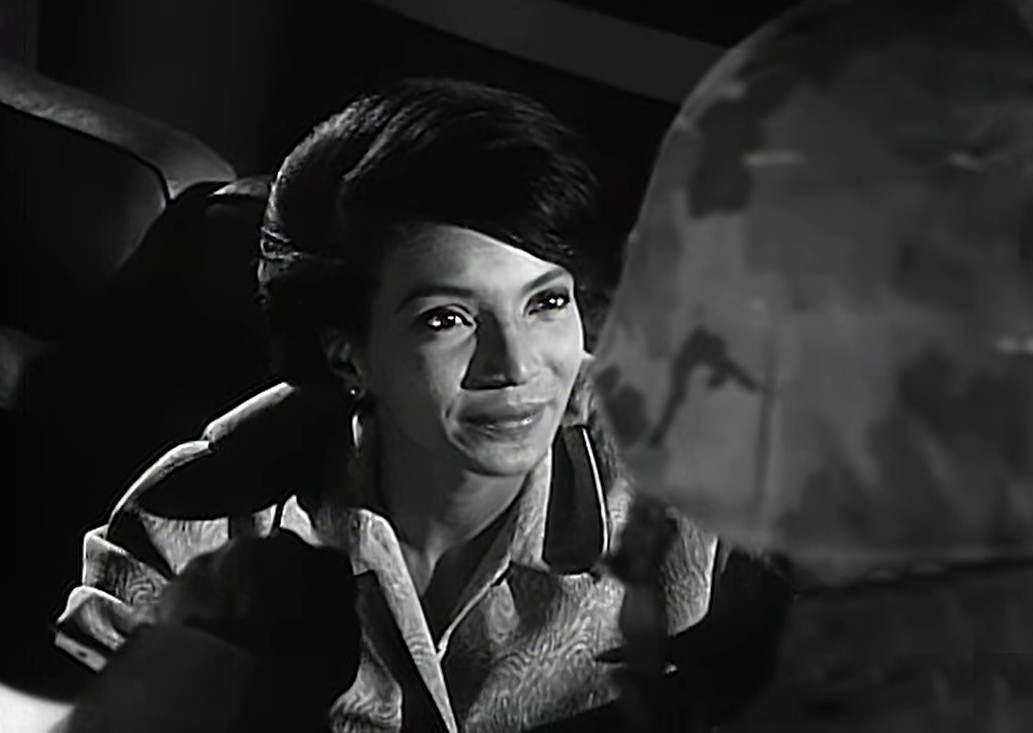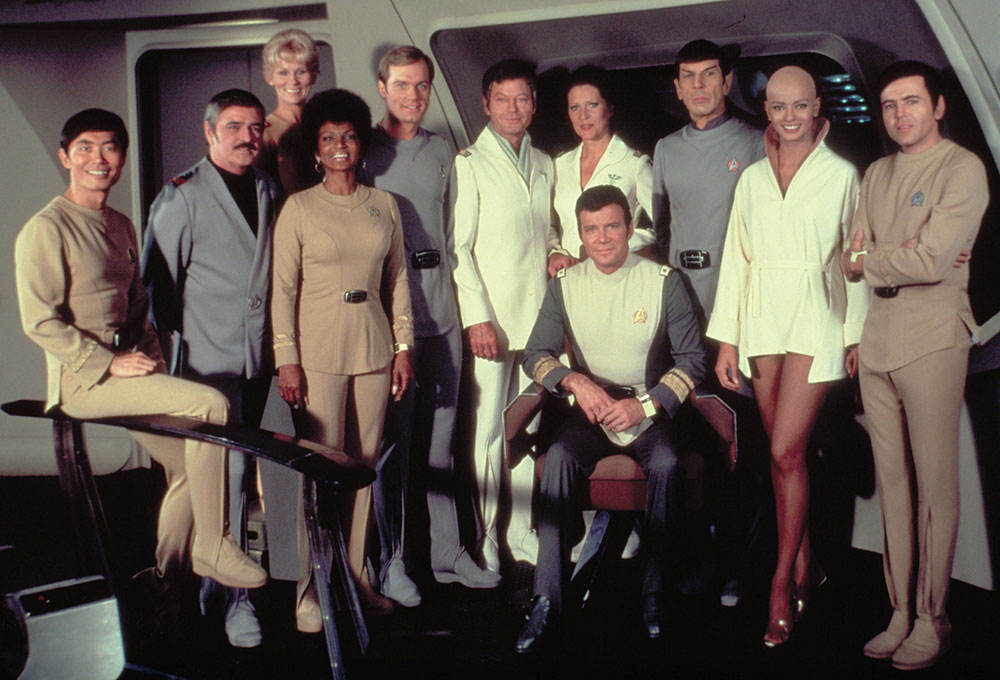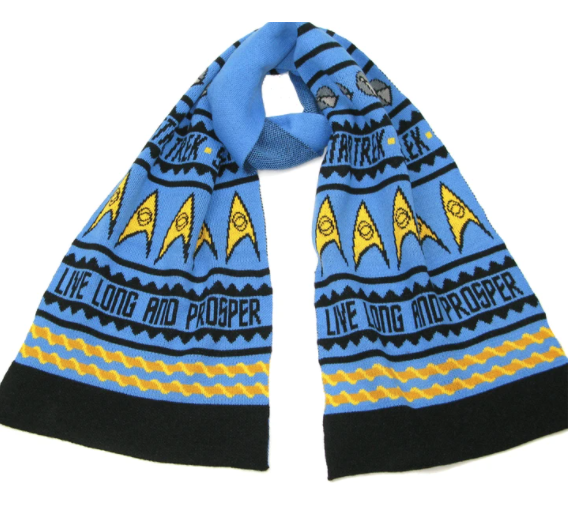The trailblazing actress, singer and dancer Nichelle Nichols has left us at the age of 89.

Nichelle Nichols, who played Nyota Uhura in Star Trek: The Original Series, passed away on 30th July 2022. “I regret to inform you that a great light in the firmament no longer shines for us as it has for so many years,” her son, the actor Kyle Johnson, wrote on Nichelle’s official site. “Last night, my mother, Nichelle Nichols, succumbed to natural causes and passed away. Her light, however, like the ancient galaxies now being seen for the first time, will remain for us and future generations to enjoy, learn from, and draw inspiration. Hers was a life well lived and as such a model for us all.”
And though her credits were extensive, Star Trek remained a key part of Nichelle Nichols’ life – her site is uhura.com, and Johnson signed off the sad news with that iconic legend, “Live Long and Prosper.”
Why did Nichelle Nichols change her name?
Born Grace Dell Nichols, the third of six children, she actually didn’t like her name, so asked her parents – homemaker Lishia Nichols and Samuel Earl Nichols, elected mayor of Robbins, Illinois – for a new one. They settled on Nichelle, meaning “victorious maiden.” It perfectly sums up her spirited approach to life.
Her acting break came in the 1961 musical, Kicks and Co., a less-than-subtle satire on Playboy magazine, which was critically acclaimed but largely shunned by the general public; nonetheless, it got her noticed and instilled in her a love of the stage. In fact, this passion for live performance nearly drove her away from her most famous role – that of Uhura in Star Trek.
She’d actually caught the eye of Trek creator Gene Roddenberry after appearing in an episode of his 1963-64 drama The Lieutenant, and the two became romantically involved for a short time. Their relationship apparently ended long before Gene offered her the ground-breaking role in Trek, but the pair remained close.

As Uhura, a key part of the USS Enterprise’s Bridge crew, Nichols was one of the first black women to have such a prominent role in a major US TV series and as such is remembered as a trailblazer – not least for the 1968 episode ‘Plato’s Stepchildren’. This featured one of, if not the first instance of an interracial kiss on American television.
Though some dispute this claim, it was nonetheless something that Nichelle remained rightly proud of, and in her 1994 autobiography, Nichelle Nichols, Beyond Uhura: Star Trek and Other Memories, she fondly wrote, “For me, the most memorable episode of our last season was ‘Plato’s Stepchildren’.” Indeed, it seems the kiss was largely well-received by the public too; she recalled only one negative letter, from a white southerner, who stated that he was “totally opposed to the mixing of the races. However, any time a red-blooded American boy like Captain Kirk gets a beautiful dame in his arms that looks like Uhura, he ain’t gonna fight it.”
Nichelle Nichols almost left Star Trek
It’s easy to underestimate the importance of such a character in Star Trek, but it’s highlighted by the aforementioned time Nichelle Nichols intended to leave the series for a role on Broadway. Roddenberry was resistant to her departure so talked her into taking a weekend off in order for her to fully consider the idea. That fateful weekend, she attended a party with a man who claimed to be her “greatest fan”: Martin Luther King Jr., leader of the 1950s and 1960s civil rights movement.
He really was a fan, telling Nichelle that Star Trek was the only TV show he and his wife let their children watch. When Nichols admitted that she was thinking of leaving, he told her simply that she couldn’t because “for the first time on television, we will be seen as we should be seen every day: as intelligent, quality, beautiful people who can sing, dance, and can go to space, who are professors, lawyers…”
Needless to say, she stayed.
That seemed to cement her love of Trek too; after The Original Series was cancelled, she appeared as Uhura again in several movies and voiced her in Star Trek: The Animated Series (1973-74). (She would go on to voice many characters in animations like Spider-Man: The Animated Series as Miriam, Blade the vampire’s mother; Gargoyles as Diane Maza; and Batman: The Animated Series as Thoth Khepera, Queen of Two Continents – not to mention voicing versions of herself in The Simpsons and Futurama!)

Her meeting with Martin Luther King Jr. is perhaps echoed in an episode of Strange New Worlds. Cadet Uhura, played by Celia Rose Gooding, is honouring her deceased parents by joining Starfleet, the service they also served, but is unsure about her future with the United Federation of Planets. But after she impresses her Enterprise peers, Spock encourages her to stay on and make a difference.
Of course, this could also reflect Nichelle’s work with NASA. She volunteered for a special project in astronaut recruitment, welcoming more minorities and females into the agency. This initiative included the first female American astronaut, Dr Sally Ride, and the first African-American astronaut, United States Air Force Colonel Guion Bluford.
It’s said that Nichelle Nichols recruited 8,000 candidates during her time with NASA, making her not just an important part of the televisual and cultural landscape but also a vital driving force in humanity’s journeys into space.
An inspirational mission
“Nichelle Nichols was a trailblazing actress, advocate, and dear friend to NASA,” said NASA Administrator Bill Nelson. “Nichelle’s advocacy transcended television and transformed NASA. After Apollo 11, Nichelle made it her mission to inspire women and people of colour to join this agency, change the face of STEM and explore the cosmos. Nichelle’s mission is NASA’s mission. Today, as we work to send the first woman and first person of colour to the Moon under Artemis, NASA is guided by the legacy of Nichelle Nichols.”
Mae Jemison, the first black woman to go into space, even cited Uhura as her inspiration for becoming an astronaut; Jemison would later appear in Star Trek: The Next Generation, playing Lieutenant Palmer in ‘Second Chances’ (1993.)
Nichelle Nichols has an asteroid named after her too: 68410 Nichols, largely found between the orbits of Mars and Jupiter. Think of that whenever you look up into the night’s sky.
Nichelle Nichols died of heart failure in New Mexico on 30th July 2022, but her legacy reaches far into the future. What’s your favourite memory of this iconic actress?

Live long and prosper scarf – order now from the Lovarzi shop!


Leave a Reply